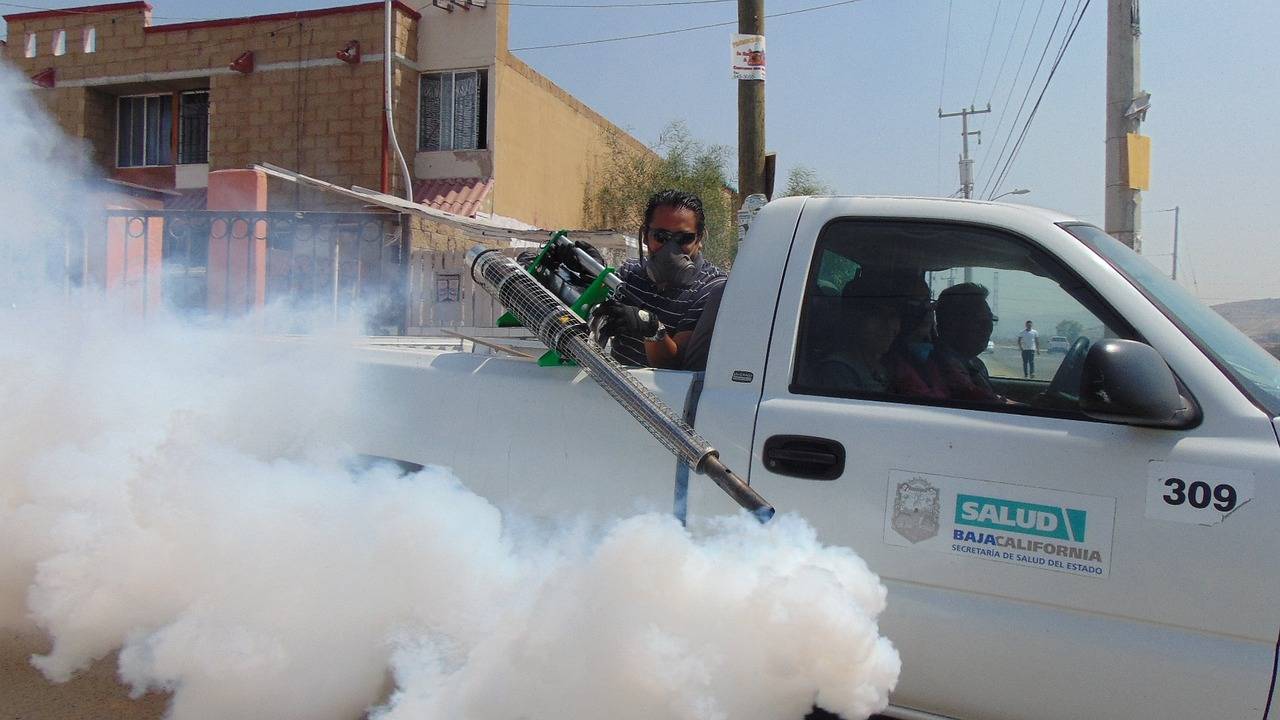
Dengue fever, commonly known as "breakbone fever," is a viral disease spread by Aedes mosquitoes that have been infected. It poses a considerable public health challenge in numerous tropical and subtropical areas, leading to a diverse array of symptoms, ranging from mild flu-like signs to severe and potentially life-threatening complications. In this blog, we will delve into different facets of dengue fever, such as its symptoms, preventive strategies, and the treatments that are accessible.
Dengue Hits India: Many Cities Reported Dengue Cases
The peaceful district of Chander Nagar faced a growing concern as eight new cases of dengue emerged, prompting a swift response from the local health department with an awareness campaign. Dengue, known as the "mosquito menace," was spreading across northern India, with Ghaziabad reporting 11 new cases, Noida reporting 12, and Haridwar facing a dual crisis of dengue and floods, totalling 103 cases.
Panic spread as long queues of patients filled hospitals in Kankhal, Ruhalki, and Roorkee. The dengue outbreak continued to escalate, with the state recording over 700 cases, most concentrated in Dehradun, which had 458 cases, comprising nearly 63% of the total.
Despite the challenges, healthcare workers and authorities persisted in their efforts to combat dengue. Northern India united in the face of the mosquito menace, preparing for the difficult days ahead in their battle against the disease.
What Is Dengue Fever?
Dengue fever results from the dengue virus, a member of the Flaviviridae family. The virus comes in four unique serotypes (DEN-1, DEN-2, DEN-3, and DEN-4), and being infected with one serotype doesn't grant immunity against the others. This implies that people can experience dengue fever multiple times, elevating the chances of encountering severe complications.
What Are The Common Symptoms of Dengue?
Dengue fever can present with a variety of symptoms, each with varying levels of severity. Typical manifestations include:
1. Elevated Fever: The initial indication of a dengue infection is often a sudden and high fever.
2. Intense Headaches: Severe headaches, often referred to as "dengue headaches," are a prevalent symptom.
3. Joint and Muscle Ache: Dengue is frequently linked to intense joint and muscle discomfort, earning it the moniker "breakbone fever."
4. Skin Eruption: A rash may emerge a few days after the fever's onset, typically appearing on the arms, legs, and face.
5. Exhaustion and Weakness: Dengue fever can result in profound fatigue and weakness, persisting for several weeks.
6. Hemorrhaging: In severe instances, dengue can induce bleeding from the nose, gums, or beneath the skin, a condition known as dengue hemorrhagic fever (DHF), which can be life-threatening.
Dengue Fever: Prevention Measures
Preventing dengue fever primarily revolves around reducing the chances of mosquito bites and managing mosquito populations. Below are some effective preventive measures:
-
Apply Mosquito Repellent: Use mosquito repellent that contains DEET, picaridin, or oil of lemon eucalyptus on exposed skin and clothing.
-
Don Protective Clothing: Opt for long-sleeved shirts, long pants, socks, and closed shoes to minimize exposed skin.
-
Eradicate Breeding Sites: Routinely empty, clean, or cover containers that can accumulate and retain water, as stagnant water serves as breeding sites for Aedes mosquitoes.
-
Install Screens on Windows and Doors: Ensure that windows and doors have screens in place to keep mosquitoes from entering living areas.
-
Utilize Bed Nets: Sleep under bed nets treated with insecticide, particularly if you are in an area with a heightened risk of dengue.
-
Stay Indoors During Peak Mosquito Activity: Aedes mosquitoes are most active in the early morning and late afternoon, so consider staying indoors during these periods.
Best Treatment Methods For Dengue
There is no specific antiviral treatment for dengue fever. Treatment focuses on relieving symptoms and providing supportive care. Here are some essential aspects of dengue treatment:
1. Stay Hydrated: Drink plenty of fluids, including oral rehydration solutions, to prevent dehydration, especially if you have severe vomiting or diarrhea.
2. Pain Relievers: Over-the-counter pain relievers like acetaminophen can help reduce fever and alleviate pain. Avoid nonsteroidal anti-inflammatory drugs (NSAIDs) like ibuprofen, as they can increase the risk of bleeding.
3. Medical Monitoring: Seek medical attention if your symptoms worsen or if you experience warning signs of severe dengue, such as persistent vomiting, severe abdominal pain, bleeding, or difficulty breathing.
4. Hospitalization: Severe cases of dengue may require hospitalization for close monitoring and intravenous fluids.
Dengue fever is a widespread and potentially serious illness that affects millions of people worldwide. While there is no specific treatment for dengue, taking precautions to prevent mosquito bites and controlling mosquito populations are essential in reducing the risk of infection. Timely medical care and proper hydration are crucial for those affected by dengue fever. Public awareness and community efforts are key in combating the spread of this disease, ultimately working towards a dengue-free world.









